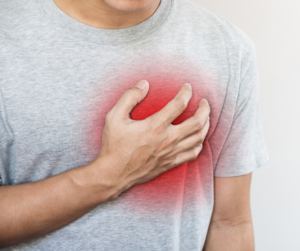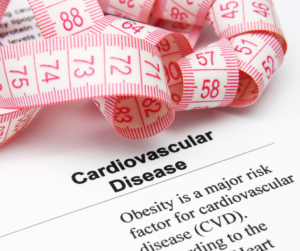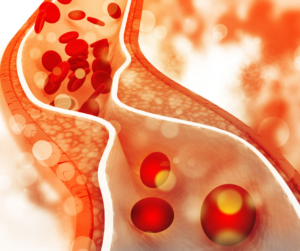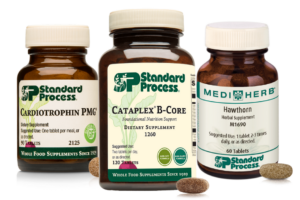By Claire Bacon, ACN, CNC
The general health of men is a major concern in our country. For a variety of reasons, men tend to put their own wellbeing on the back burner while chasing other priorities. In fact, over 20 percent of men have not seen any kind of health professional in over a year. We want to change that! Did you know, even with all the technological advances available to us today, heart disease is still the #1 killer of American men? A few sad statistics straight from the CDC:
- About 610,000 people die of heart disease in the United States every year–that’s 1 in every 4 deaths.
- Heart disease is the leading cause of death for BOTH men and women.
- Coronary heart disease (CHD) is the most common type of heart disease, killing over 370,000 people annually.
- Every year about 735,000 Americans have a heart attack. Of these, 525,000 are a first-time attack. 210,000 happen in people who have already had a heart attack.
These statistics are sad and concerning. Let’s take a look at a few reasons why…

Risk Factors for Heart Disease
Much of the epidemic of heart disease is associated with our diet and lifestyle. Most men are eating a Standard American Diet (SAD). The SAD causes chronic inflammation, with too little nutrients and too many refined carbohydrates and sugar. Carbs and sugar are most harmful because they deplete B vitamins from the body. And B vitamins are the #1 nutrients needed for a strong, healthy heart.
Whole-food B vitamins come from foods like liver, nutritional yeast, and wheat germ. Sadly, we don’t consume these foods enough in our modern lifestyle. (When was the last time you saw liver on a restaurant menu?) True whole-food vitamins, unlike synthetics, are living complexes – with known and unknown cofactors. It is critical to get our nutrition in a form that includes all the enzymes and cofactors that make up a naturally occurring vitamin complex.
In addition, our society makes getting around too easy. Too many people are way too sedentary. They go from the house to the car to the office to the elevator, and back again. Most men simply don’t get enough sustained cardiovascular activity to build a strong heart muscle and tone the arteries.

Early Signs and Symptoms
And what does our typical American in our sickness-care system do? He gets a basic physical, which might show elevated cholesterol. Without understanding the reasons for the test result he might jump to taking a statin, which lowers his high cholesterol markers, but which doesn’t solve the problem. The high sugar diet and sedentary lifestyle continue, with inflammation progressing through other body systems. Therefore, the heart and other muscles continue to weaken, and the arteries get stickier. Even with the lowered cholesterol values, the person is still in bad shape with a high risk for future problems and more medications. But it doesn’t have to be this way!
Shortness of Breath or Low Energy
One early sign of a weakened heart might be shortness of breath, weakness and low energy. If the muscle is weak, and not effective in pumping blood all the way to the extremities and back, you could feel lightheaded and dizzy. Many conditions can cause the heart to weaken. When the heart is weak, it is unable to pump enough blood to meet the body’s needs. Conditions like obesity, coronary heart disease, and high blood pressure damage or cause the heart to overwork, which can lead to heart failure.
Heaviness or Tightness in Chest
For some men, you might feel some heaviness or tightness in the chest, or a sudden pain going down the left arm. This could be a sign of angina, a temporary squeezing feeling, due to the heart not receiving enough oxygen to the tissue. Our favorite product to help with this is Cataplex E2. It’s excellent to improve how the tissues receive and conserve oxygen, whether in ailing health or just looking for a boost in aerobic performance. Of course, we also love the nitric oxide enhancing benefits you get from beets for this reason!
Swelling in Ankles and Feet
Swelling in your ankles and feet may happen often late at night when you’re tired, when you’re standing all day, or in the heat. The fluid build-up is due to reduced blood flow out of the heart, causing blood returning to the heart through the veins to back up. This leads to fluid accumulation in the abdomen and lower limbs and congestion. Reduced function from the heart or kidneys can cause this problematic swelling.
More to the Story…
The good news is, not every problem has to do with clogged arteries and cholesterol. Actually, about 80% of cardiovascular events occur due to weakened function in the valves of the four chambers of the heart. And yes, we can FEED the body in ways to STRENGTHEN the valves and REDUCE RISK for having symptoms now and disease later in life! You just need to be willing to find out more, and then follow-through with what needs to be done.
Doesn’t that feel good? Knowing that with the right education and resources, you can reduce your risk of cardiovascular disease AND help your body optimize its full function!

So, what can we do?
Heart Sound Recorder
Our practice is very fortunate to have a digital Heart Sound Recorder available to evaluate real-time function of the heart valves. This is a non-invasive, low-risk, general wellness monitor that uses the principles of auscultation to observe the rate, rhythm and tone of the heart. From the graphs, we can see evidence of how the nervous system controls the RATE at which your heart beats, whether the RHYTHM is even and regular, and allows enough time for rest compared with the work periods, and we can observe the strength or TONE of the ventricles as they push blood throughout the body. This is a valuable resource! If you would like to get your own evaluation and personalized recommendations, please schedule a consult.

Bloodwork Tests with Deeper Meaning
We also like to keep an eye out for inflammatory markers in your bloodwork. When you see the warning signs early, you have a better chance of turning things around! Lipid values (cholesterol) are commonly tested, but often don’t give the full picture. When lipids are borderline high, we like to check the NMR detailed analysis, to see whether you have too many small particles, which can put you at higher risk. We also like to see Fasting Insulin, because this can sometimes be out of line even if your Hemoglobin A1c and Fasting Glucose look perfect.
Of course, C-Reactive Protein is good to know, as it indicates whether your arteries are inflamed and sticky. And Homocysteine, Lp (a) and Apo B give you extra info about genetic factors that could put you at higher risk. You could also test BNP or Troponin to see to what extent heart damage has already occurred. And checking deeper into your kidney function – with Cystatin C – is also important.
When you have more data, you can have better understanding of the issues your body is dealing with. That extra data might give you more motivation to make changes in your diet or exercise. It also gives you another way to watch your progress. Let us know if you need help with a bloodwork order or interpreting your recent results!
Heart-Healthy Diet
The most heart-healthy diet we recommend is the Mediterranean Diet, which is based on foods generally available in countries that border the Mediterranean Sea. This diet includes many fruits, vegetables, whole grains, nuts and legumes, which are minimally processed and grown locally. Olive oil is hailed as the principal source of fat. The diet also includes:
- low amounts of organic cheese and yogurt
- moderate amounts of fish and poultry
- small and infrequent amounts of red meat
- fresh fruit for dessert, avoiding sources of refined sugar
- small amounts of wine, but on a regular basis with meals.
If you want to start following the Mediterranean Diet, you’ve got to do more than just cook with olive oil. First, you’ve got to stop justifying the Standard American foods “in moderation”. You’ll need a much wider variety of fresh vegetables at every meal. And stop stressing out like an American, too. Start embracing a lifestyle more representative of Tuscany or Capri. Mealtime should be relaxed and spent with family or friends. Your food should be savored and enjoyed, not rushed. And it’s not uncommon in Mediterranean countries to walk 5+ miles a day. Think of the slower pace, outdoor dining, and daily walks along steep streets and narrow steps. If you start thinking about living like “the healthy people do”, you just might become healthier yourself!
Protective Supplements for a Healthy Heart

- Cardiotrophin PMG contains cellular extracts from heart muscle tissue. These are the “blueprints” of healthy heart and muscle tissue. We recommend the PMG for promoting normal tissue growth and repair.
- Cataplex B-Core is a blend of naturally occurring high B vitamin foods, such as liver powder, nutritional yeast, beets, and defatted wheat germ. It doesn’t look like much on the label because this product is not synthetic. It is high in Vitamin B4, which you don’t hear much about because it can’t be made in a lab. But this is the powerhouse vitamin that supports a regular heart rhythm and well-functioning valves, more than any other.
- Hawthorn is an herb that is considered by many to be the “nurse to the ailing heart”. It is helpful for many cardiovascular conditions, whether stemming from physical or emotional issues. We love this one for circulatory issues, irregular rhythm, and/or grieving.
Feel free to call our office to order! (404) 973-0188
In addition to those above, we have a few more favorites from our Biotics shop…
- Bio-CardioSirt BP is a multivitamin powder that is well-suited for someone struggling with high blood pressure. It provides Vitamins C, D, and B6, along with Biotin, Magnesium, Taurine and Grape Seed Extract. All of these nutrients support healthy microcirculation and the endothelial lining.
- Optimal EFAs or Biomega-3 Liquid – these are two forms of anti-inflammatory Omega 3 oils – one in softgel form and the other in liquid.
- CoQ-Zyme 100 Plus provides 100 mg of emulsified co-enzyme Q10, along with the B-complex vitamins B1, B2, B3, B6, B9, B12, Biotin and Pantothenic acid. Because it’s emulsified, the CoQ10 is more easily absorbed. You can use a smaller dose and still achieve a high efficacy.
Final thoughts
Cardiovascular disease, although widespread among men and women, is largely preventable. Through the right choices in diet and lifestyle, you can make a huge reduction in your risk! If you’ve got an eye on longevity for your future, you might as well get started today.
There’s no good reason to wait!



